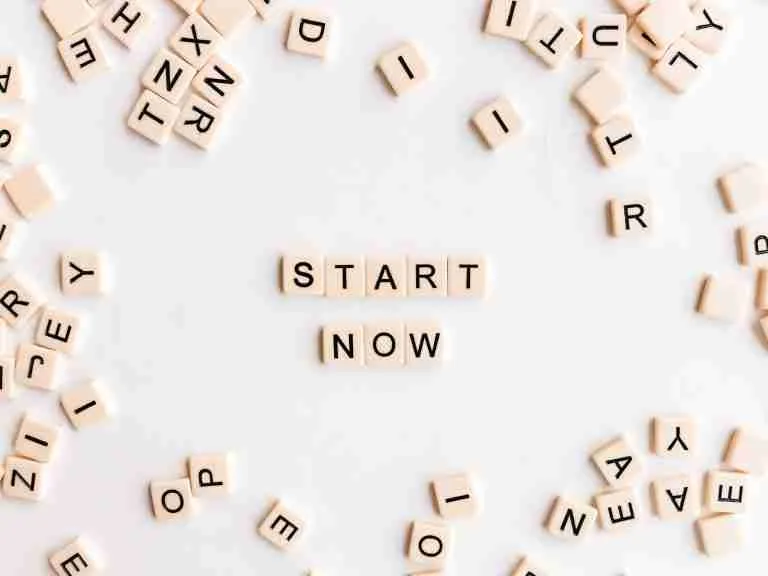Financial Mindfulness: Why Knowing Your Numbers Can Set You Free
Ever feel like your finances are a mystery that you’d rather not solve? 🤯 You’re not alone. Many of us feel overwhelmed by money matters, and sometimes the easiest choice seems to be ignoring it all. But here’s the thing—financial freedom starts with one simple step: knowing your numbers.
Financial mindfulness is about being fully aware of where you stand financially. By knowing your numbers, you can move from a place of uncertainty and anxiety to a place of confidence and control. Let’s explore how understanding your financial position can lead to true freedom, security, and even joy.

What is Financial Mindfulness?
Financial mindfulness means being actively aware of your financial situation without judgement. It’s about understanding your money—what’s coming in, what’s going out, and what your financial health truly looks like.
Think of it like your physical health. You wouldn’t want to ignore your weight or blood pressure forever, right? You track these numbers to stay healthy and catch problems early. The same goes for money. Understanding your financial numbers helps you keep things in check and make informed choices.
When you practice financial mindfulness, you’re taking a holistic view of your money. You’re not just focusing on one aspect, like debt or spending—you’re looking at the entire picture. This includes not only your income and expenses but also your emotional relationship with money. Are you someone who feels guilty every time you spend? Or maybe you avoid dealing with your finances because it makes you anxious? Financial mindfulness helps you confront these feelings in a healthy, proactive way.
And let’s not forget the emotional side. When you know where you stand, it’s easier to relax. You’re no longer guessing or fearing the worst—you’re informed, aware, and in control. Financial mindfulness can bring a sense of peace you might not have known you were missing. Imagine waking up each day feeling like you have a handle on your money—no stress, no worry—just clarity.
Why Knowing Your Numbers Matters
Let’s be honest—money can be scary. A lot of people avoid looking at their bank balance or tracking their spending because they’re worried about what they’ll find. But the truth is, avoiding it only makes things worse. The unknown often feels much scarier than the reality, and once you face it, you might realise it’s more manageable than you expected.
Knowing your numbers matters because it puts you in control. Here’s how:
- Clarity Brings Power: Understanding your income, expenses, and savings helps you make better decisions. You’re no longer just hoping for the best—you’re planning for it. Instead of reacting to financial emergencies, you can start anticipating and preventing them.
- No More Surprises: No more getting caught off-guard when the credit card bill arrives. Knowing what you spend means you’re prepared. You know what to expect, and you’re ready to handle it. This makes managing bills and expenses a lot less stressful.
- Freedom to Act: When you know where you stand, you can start planning—whether that’s reducing debt, saving for something special, or just spending without guilt. This freedom means you’re no longer stuck in survival mode; instead, you can shift your mindset to growth and abundance.
The Key Numbers You Need to Know
To be financially mindful, there are some key numbers you need to understand. It’s not about tracking every penny but about knowing the basics that make a big difference. This knowledge is the foundation on which all your financial decisions will rest.
- Income: How much is actually coming in each month? Sounds simple, but many people aren’t sure. Take into account all sources—your main salary, side hustles, and any passive income streams. Knowing your true income allows you to budget accurately and effectively.
- Expenses: Where is your money going? Categorising your spending can help you see trends. Are you spending more on takeaways than you thought? Are there areas where you could cut back without sacrificing happiness? Break down your expenses into categories like housing, food, transportation, and entertainment to gain deeper insights.
- Debt: What do you owe, and what interest rates are you paying? Facing these numbers is the first step to tackling them. Debt can feel overwhelming, but listing it all out—knowing the balance, the interest rate, and the monthly payments—gives you a starting point for taking action.
- Assets: What do you own? This includes savings, investments, or any property. Your assets are the building blocks of your financial future, and understanding what you have helps you know what’s working for you and where you can grow.
- Net Worth: The simple formula—assets minus liabilities. It’s not just for millionaires! Knowing your net worth helps you track your progress. As you build your assets and pay down your debt, watching your net worth grow can be incredibly motivating.
How Knowing Your Numbers Sets You Free
Facing your finances can feel daunting, but here’s why it’s worth it:
- Less Financial Stress: When you know where you stand, you eliminate the uncertainty and fear of the unknown. It’s no longer about worrying—it’s about taking action. Instead of fearing the worst, you can start to feel confident that you’re prepared for whatever comes your way.
- Goal Setting Becomes Easier: If you know where you are, you can plan where you’re going. Want to pay off debt? Save for a holiday? Knowing your numbers gives you a clear path. Whether it’s saving for a down payment on a house, building an emergency fund, or investing for retirement, financial mindfulness helps you set realistic and achievable goals.
- Freedom to Spend Guilt-Free: Ever feel guilty about spending on something fun? When you know your budget, you can set aside a “fun fund” that lets you enjoy life now—guilt-free. This balance between enjoying today and planning for tomorrow is the key to lasting financial happiness. By knowing your numbers, you give yourself permission to enjoy your money without the nagging guilt.
- Better Relationships: Money is one of the top stressors in relationships. When you and your partner are both financially mindful, you can have open, honest conversations about your goals and challenges. This transparency can lead to a healthier, more supportive partnership.
Practical Steps to Become Financially Mindful Today
Ready to start your journey to financial mindfulness? Here are some practical steps to get you going:
- Set Aside 30 Minutes: Take half an hour this week to review your financial status. Look at your income, spending, and debts. This small investment of time can give you a clear picture of your current situation.
- Record Your Findings: Write it down in a notebook, use a spreadsheet, or try a simple budgeting app—whatever works for you. The key is to make it easy and accessible. Once it’s recorded, it’s real. You can revisit it anytime to track your progress.
- Make It a Habit: Financial mindfulness isn’t a one-time thing. Set a reminder to check in weekly or monthly. This will help keep you on track without feeling overwhelmed. The more consistent you are, the easier it becomes to stay informed and adjust as needed.
- Mindset Matters: Remember, this is a journey. There’s no need for perfection. Every small step brings you closer to financial clarity and freedom. If you make a mistake, learn from it and move on. Financial mindfulness is about progress, not perfection.
- Automate Where Possible: Automate your savings, bill payments, and investments. By reducing the number of decisions you have to make, you’ll find it easier to stay mindful without constant effort. Automation can also help you stick to your goals without having to rely solely on willpower.
You need to know your numbers because they’re yours!
Knowing your numbers is the first step to financial freedom. It’s not about restriction or deprivation—it’s about being informed, making intentional choices, and letting your money work for you. Imagine the relief of no longer guessing or fearing—just clear, confident action.
The path to financial freedom is not about making dramatic sacrifices or hoping for a big windfall. Instead, it’s about making small, consistent changes, rooted in the knowledge of your financial situation. By knowing your numbers, you empower yourself to make choices that align with your values and goals.
Final Thoughts on Knowing your Numbers
Financial freedom doesn’t come from a lottery win; it starts with knowing your numbers and owning your journey. Start today, and let your finances work for you—not against you. Remember, the first step is the hardest, but it’s also the most empowering. 😊
Every journey begins with a single step, and by choosing to become financially mindful, you’re taking that step towards a future where money isn’t a source of stress but a tool that enables your dreams. You’ve got this!
I hope this blog inspires your readers to take that first step towards financial mindfulness! Let me know if you’d like any tweaks or additional details, or if you’d like to include more examples or resources.
Ready to take your financial journey to the next level?
If you’re looking for personalised support to help you get financially organised and plan for a rich, fulfilling life, I offer one-on-one coaching tailored to your needs. Together, we can create a roadmap that aligns with your values and goals, making financial freedom a reality. Book your free 30-minute discovery call today and let’s start building your financially happy future. 😊






